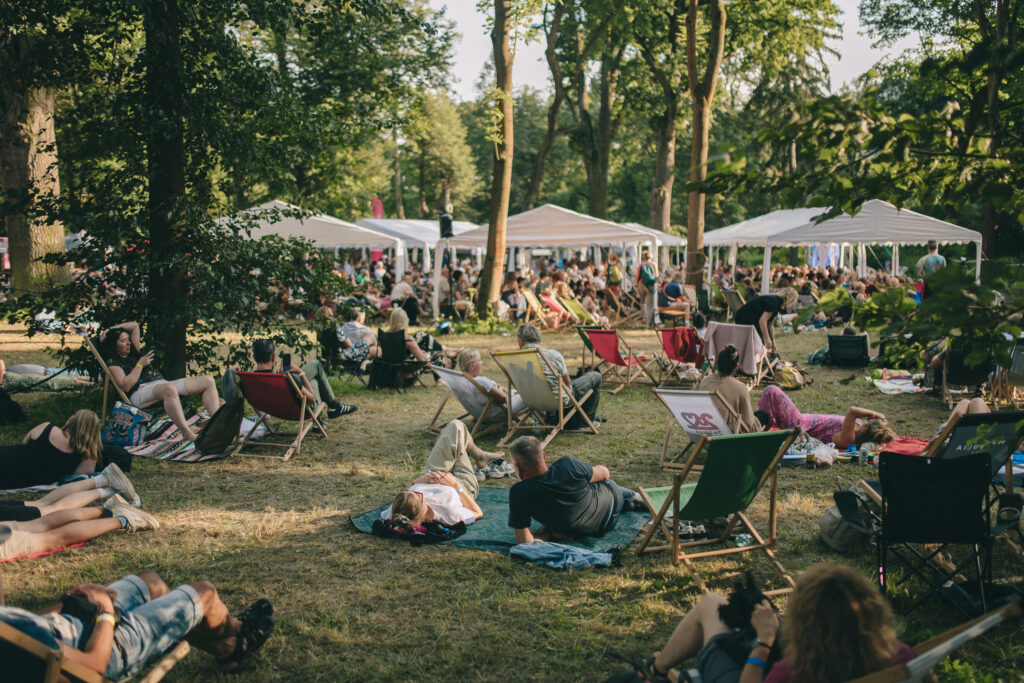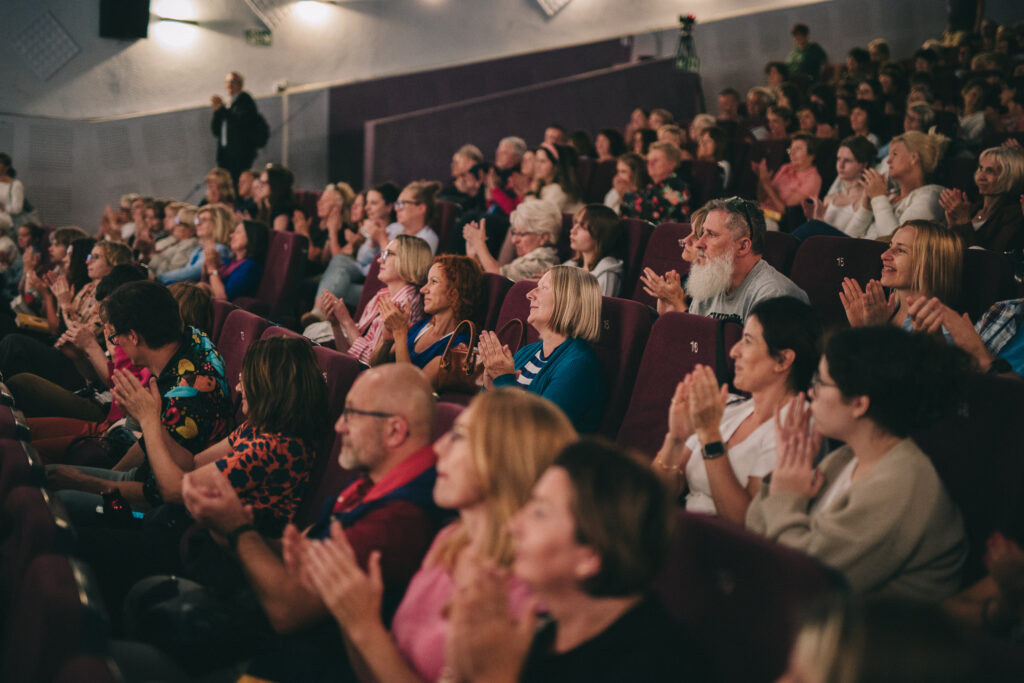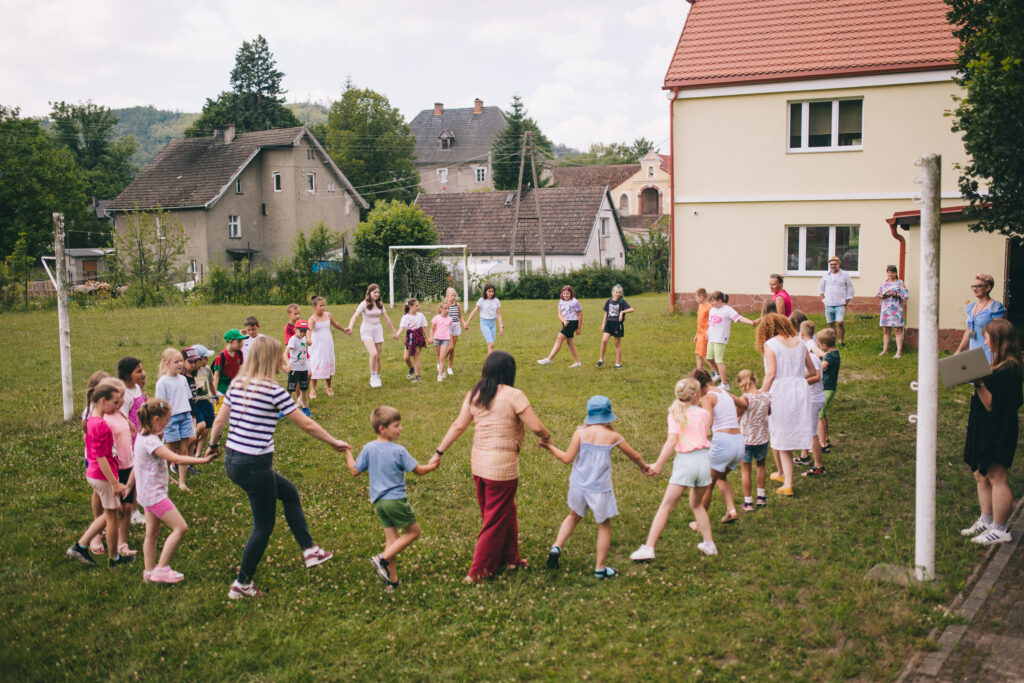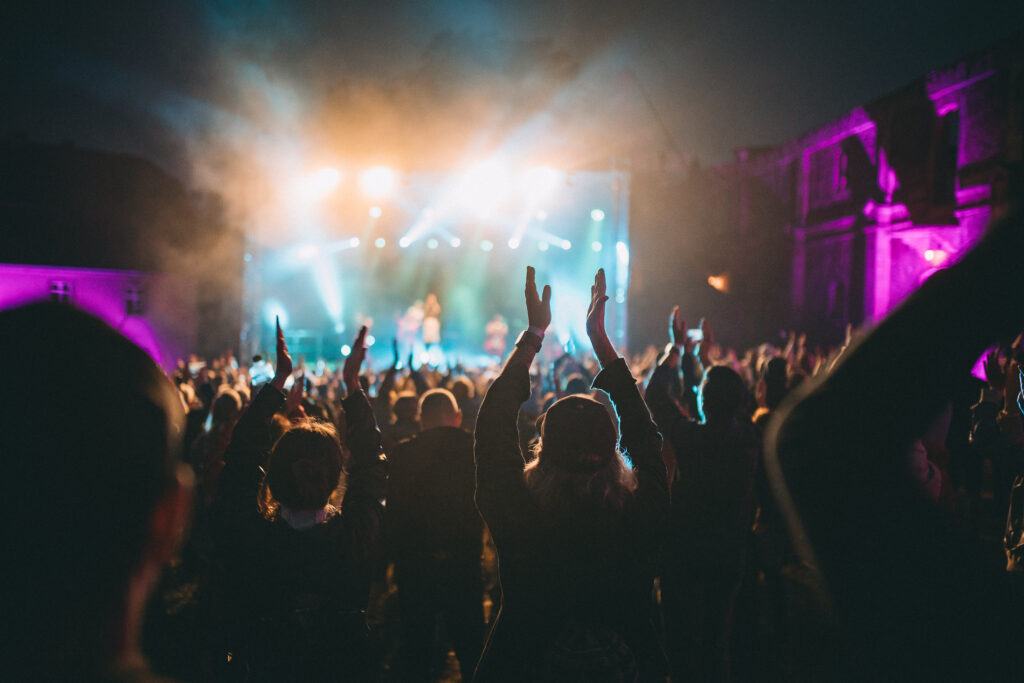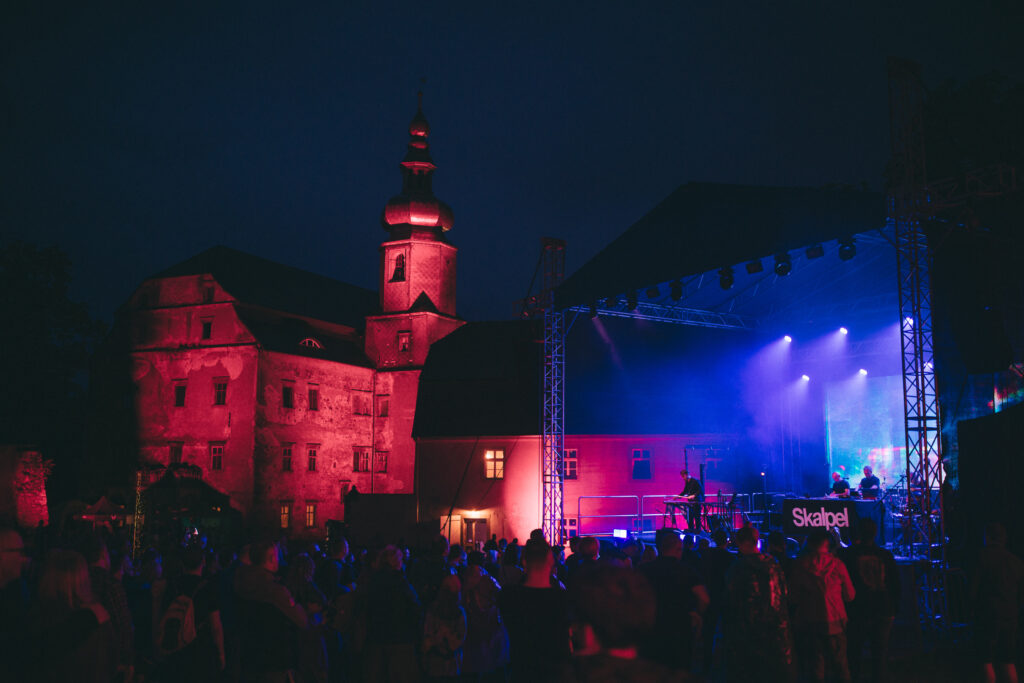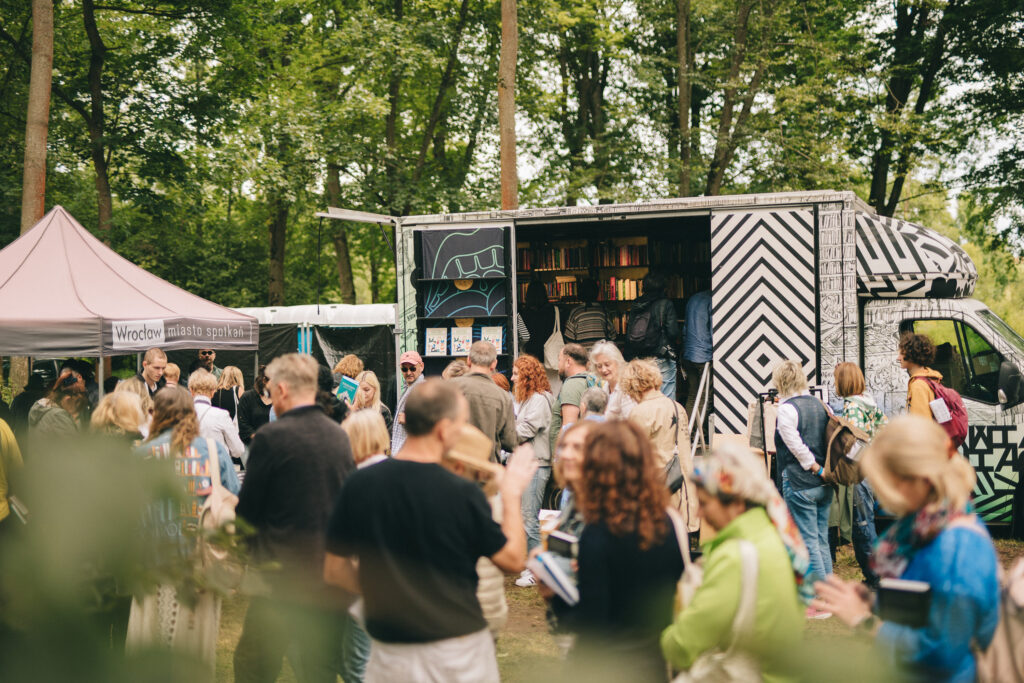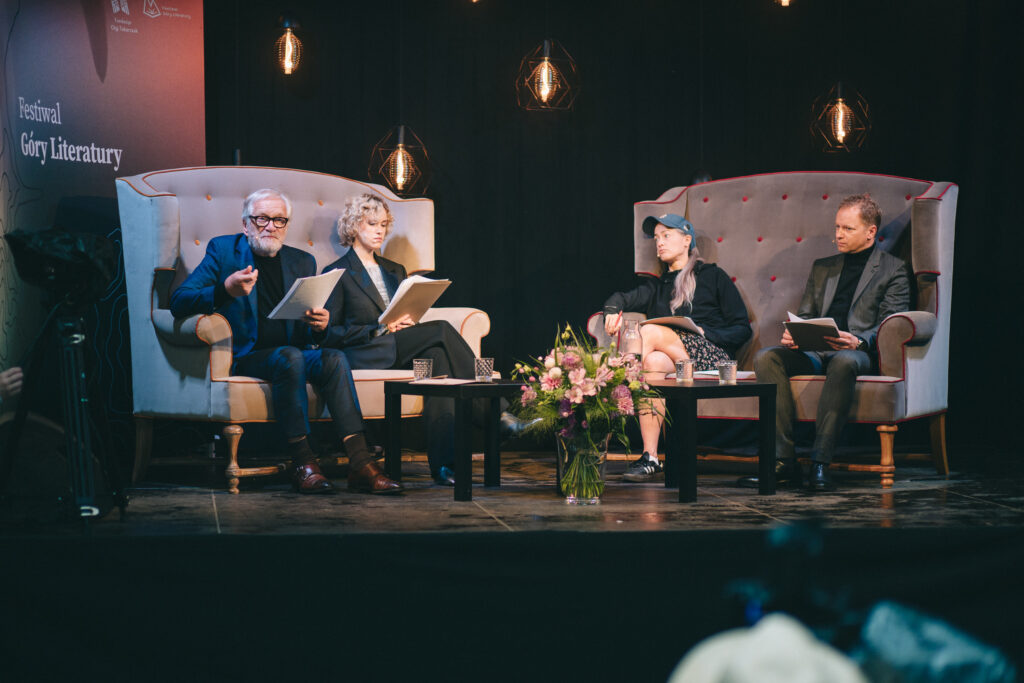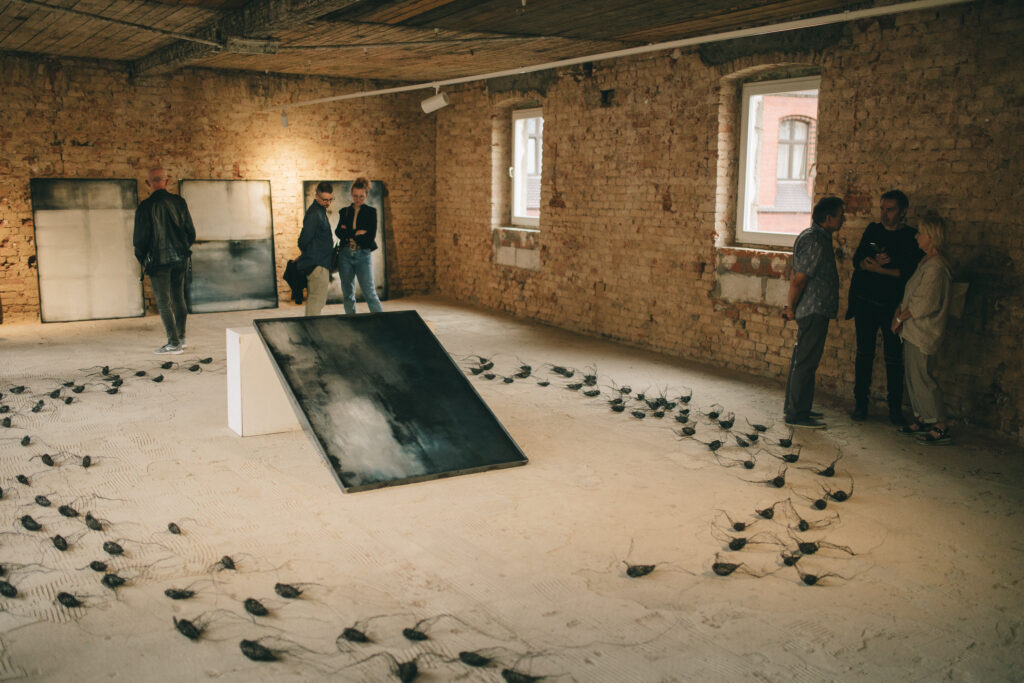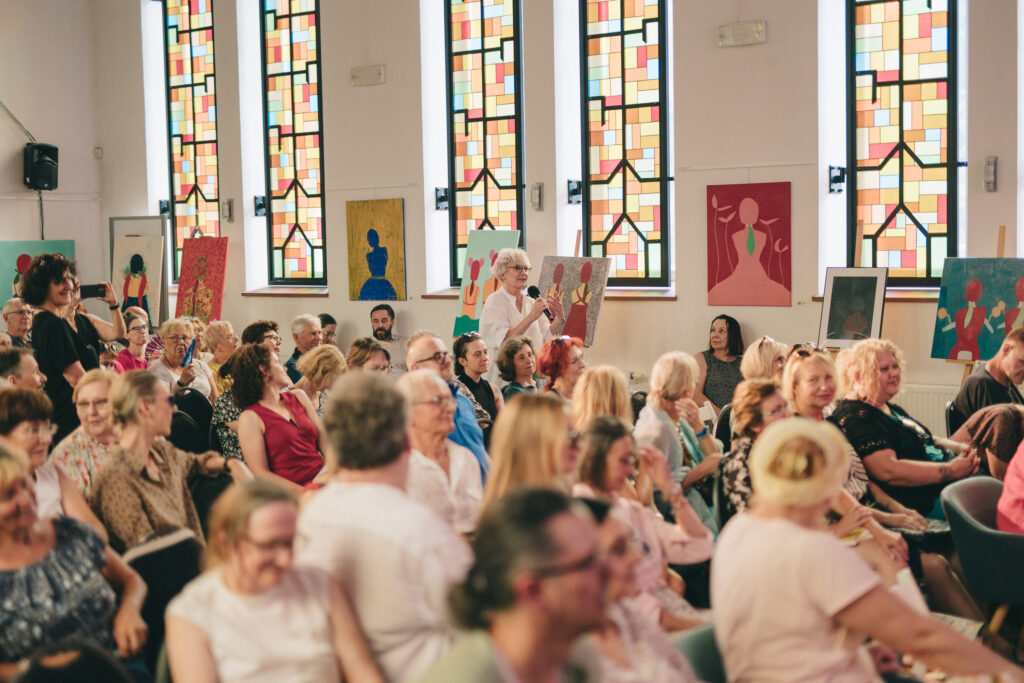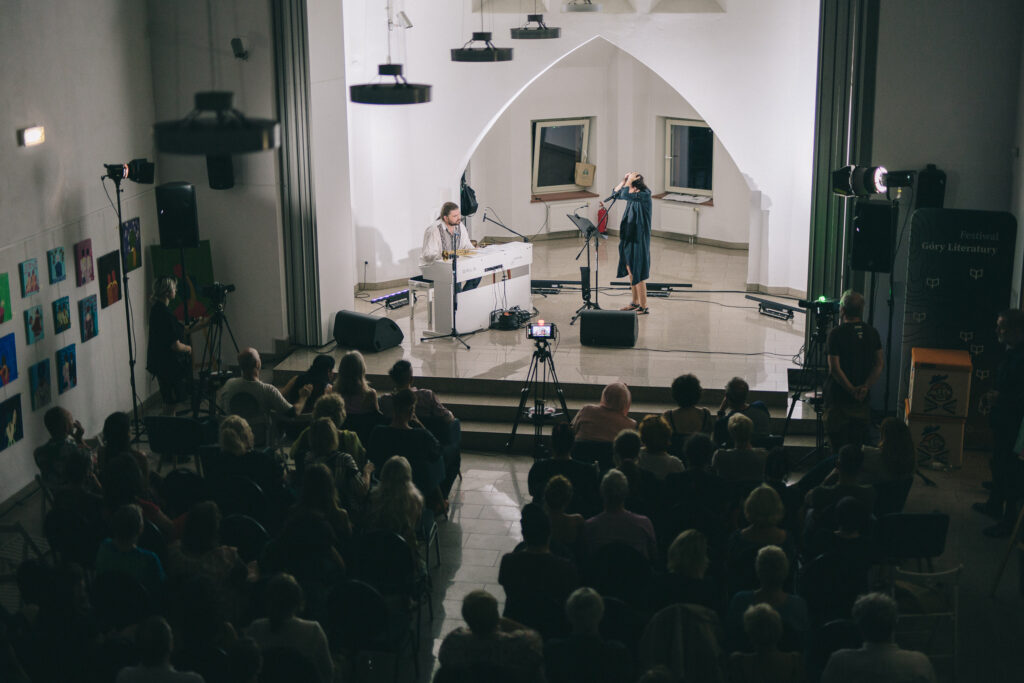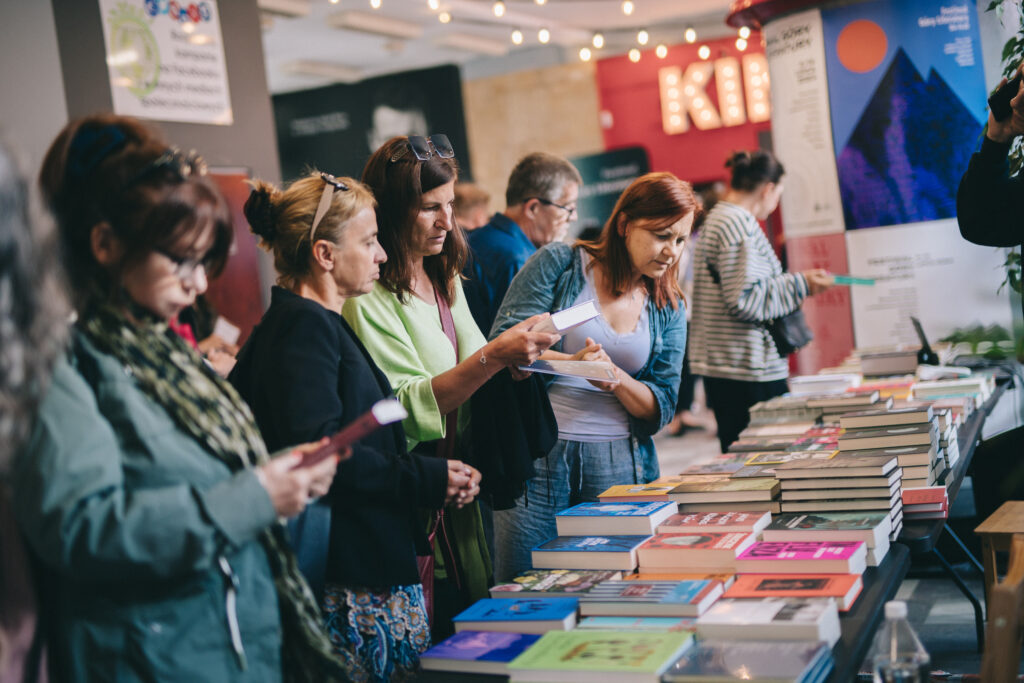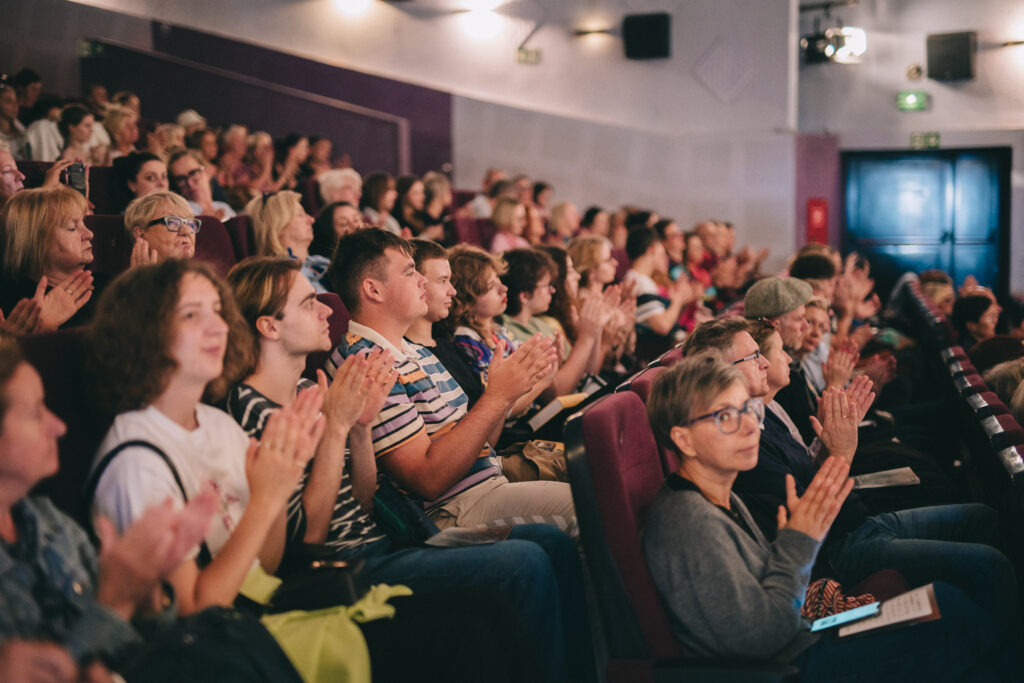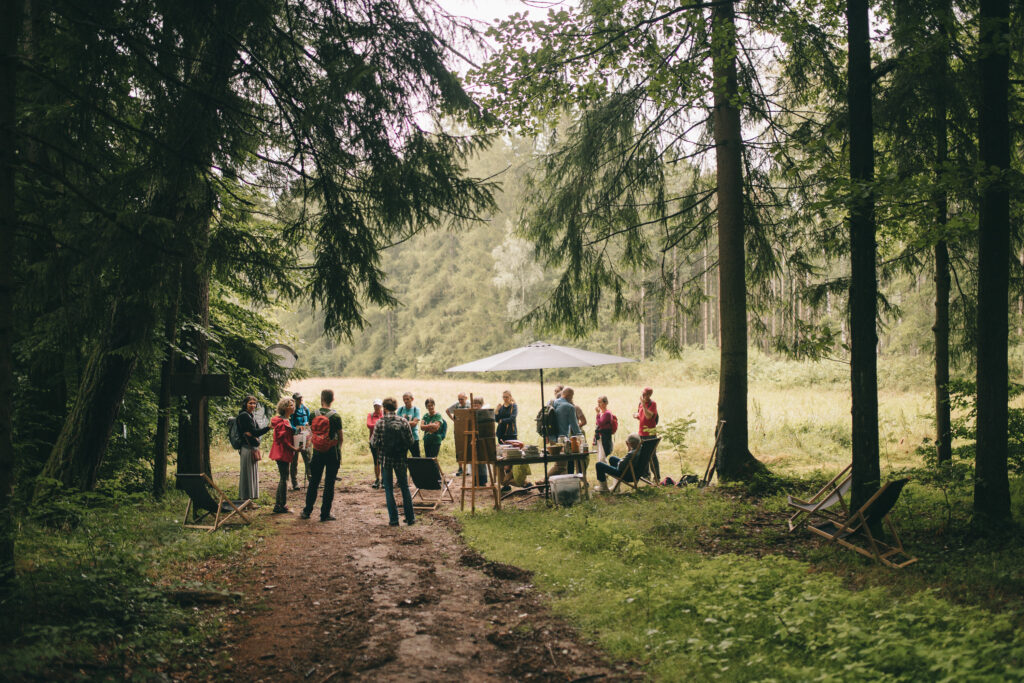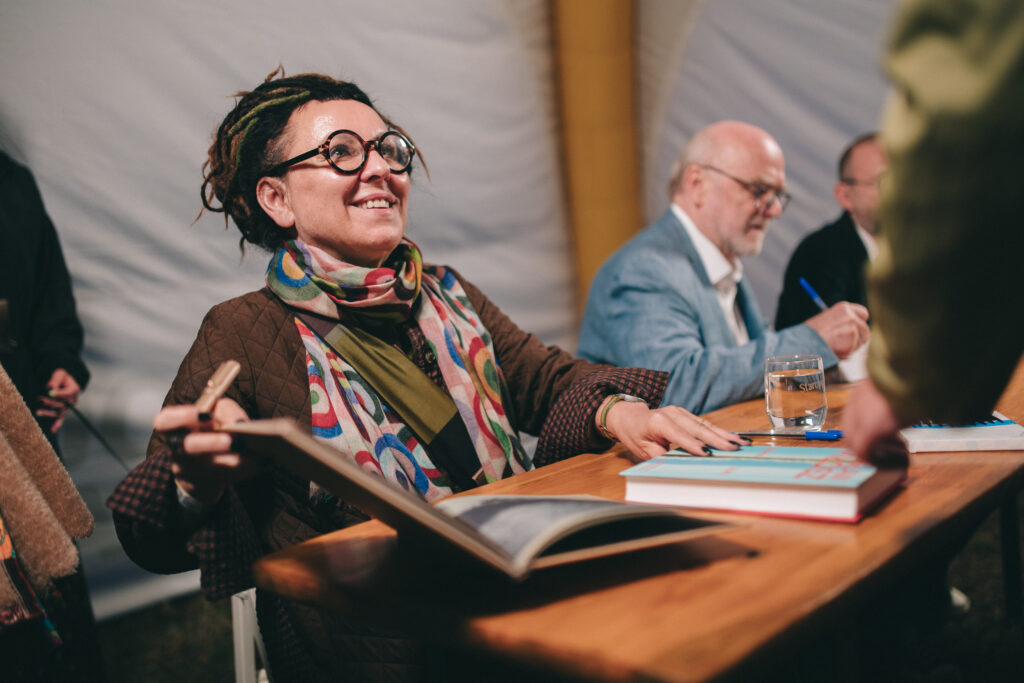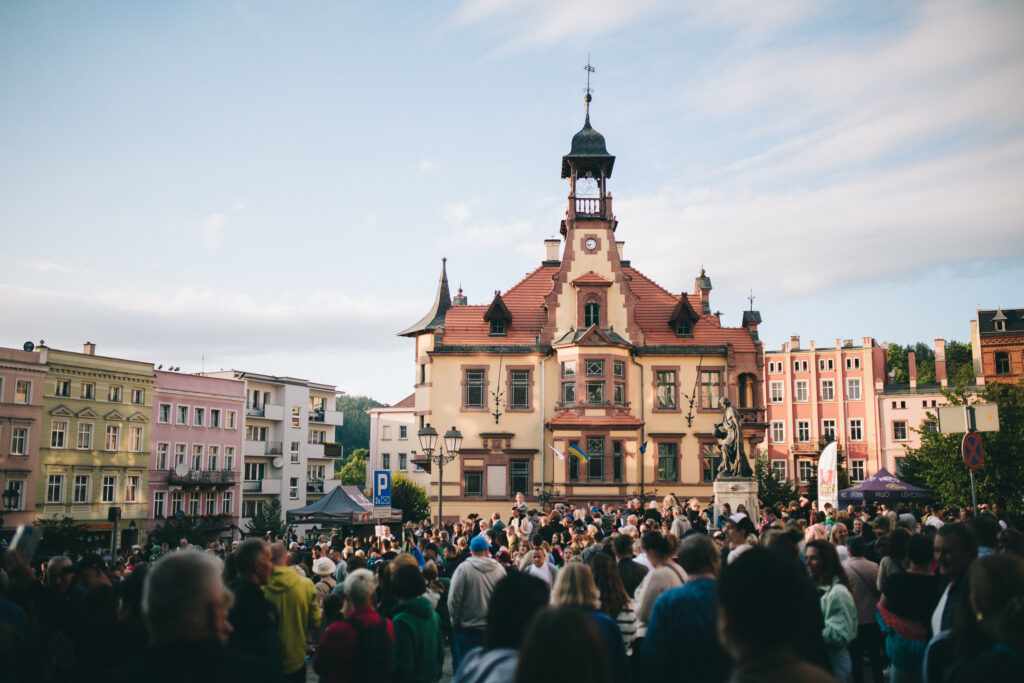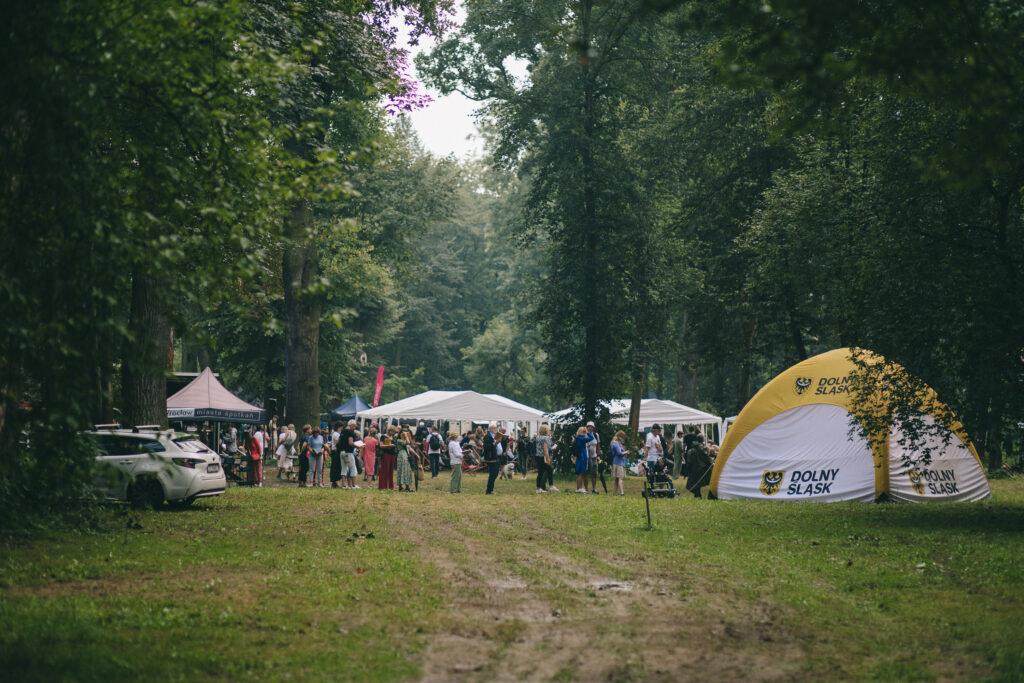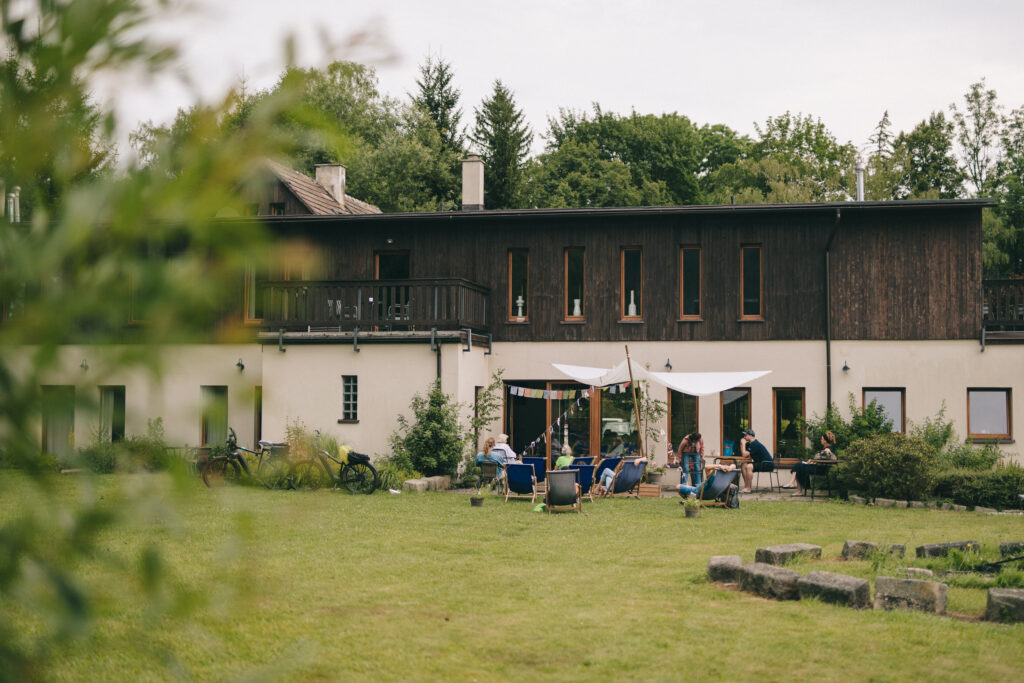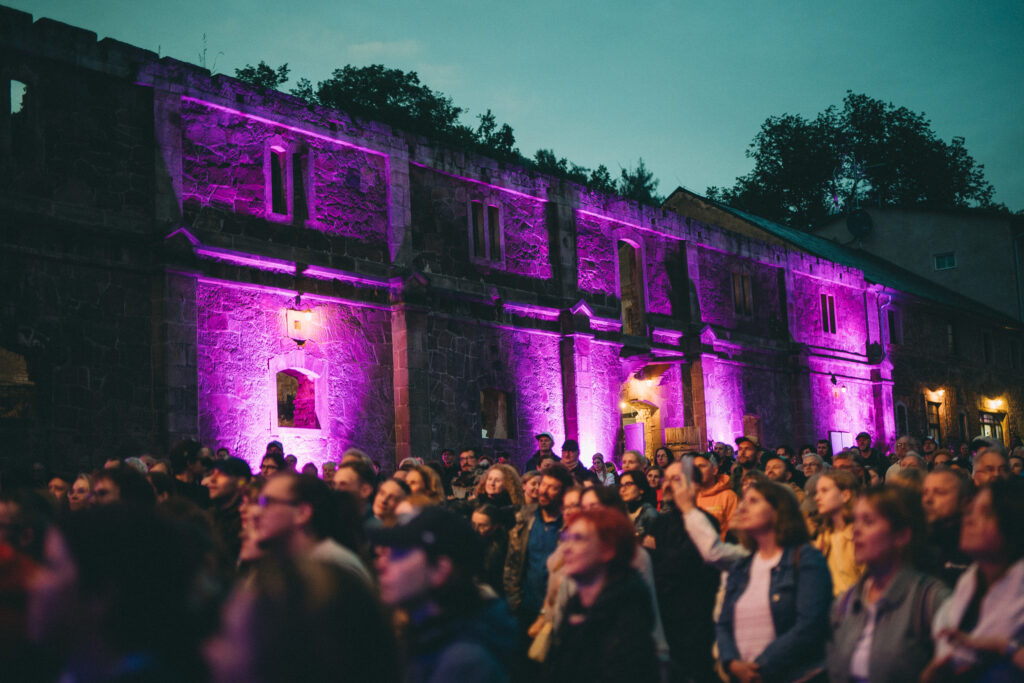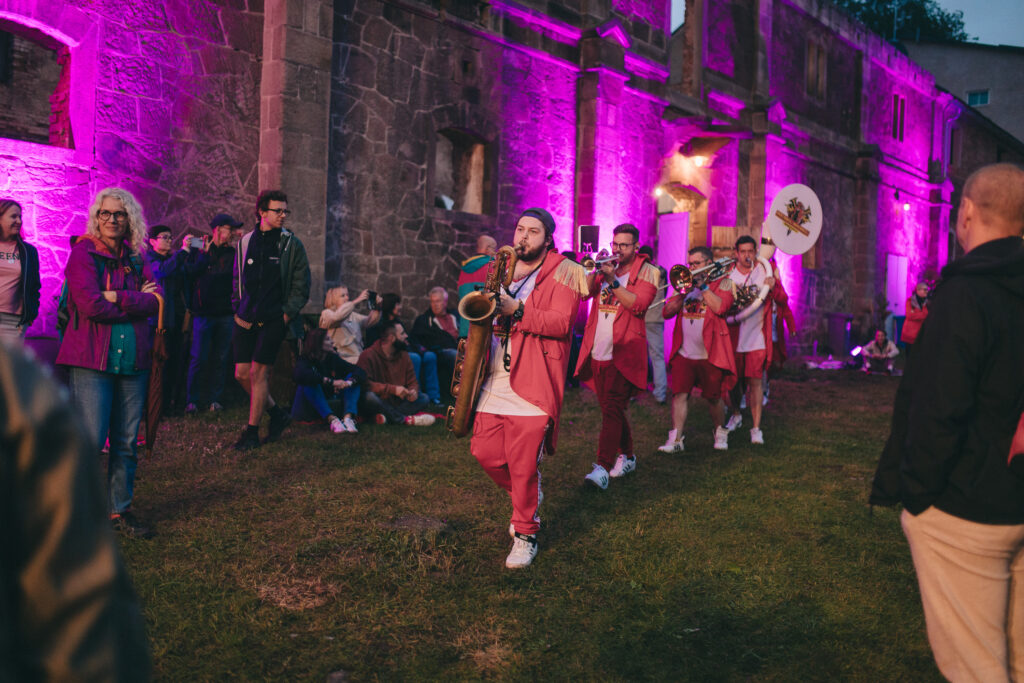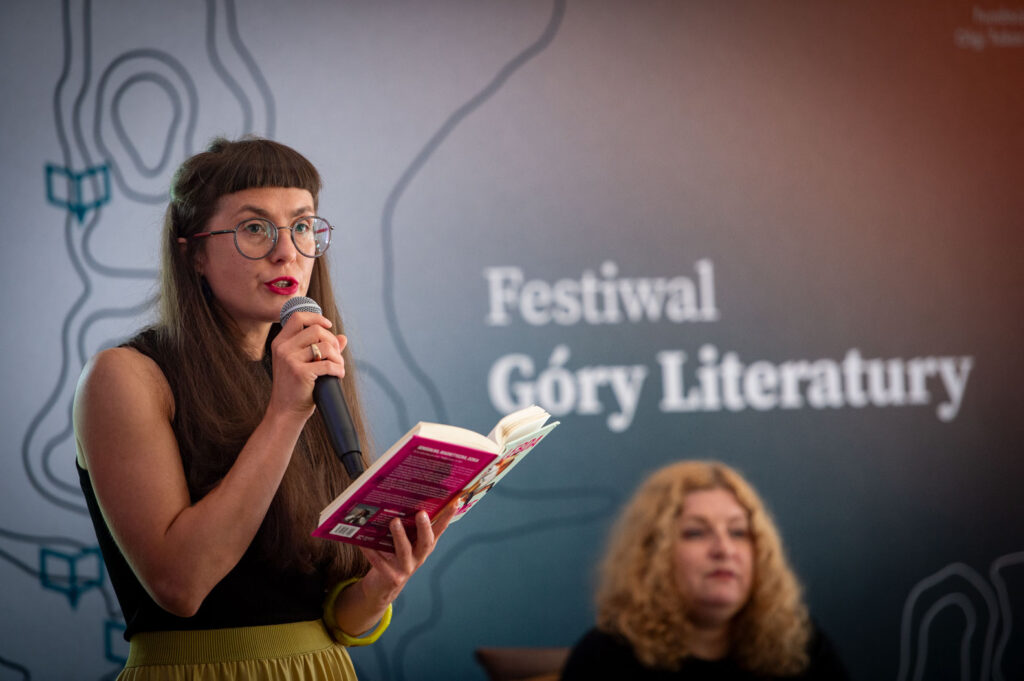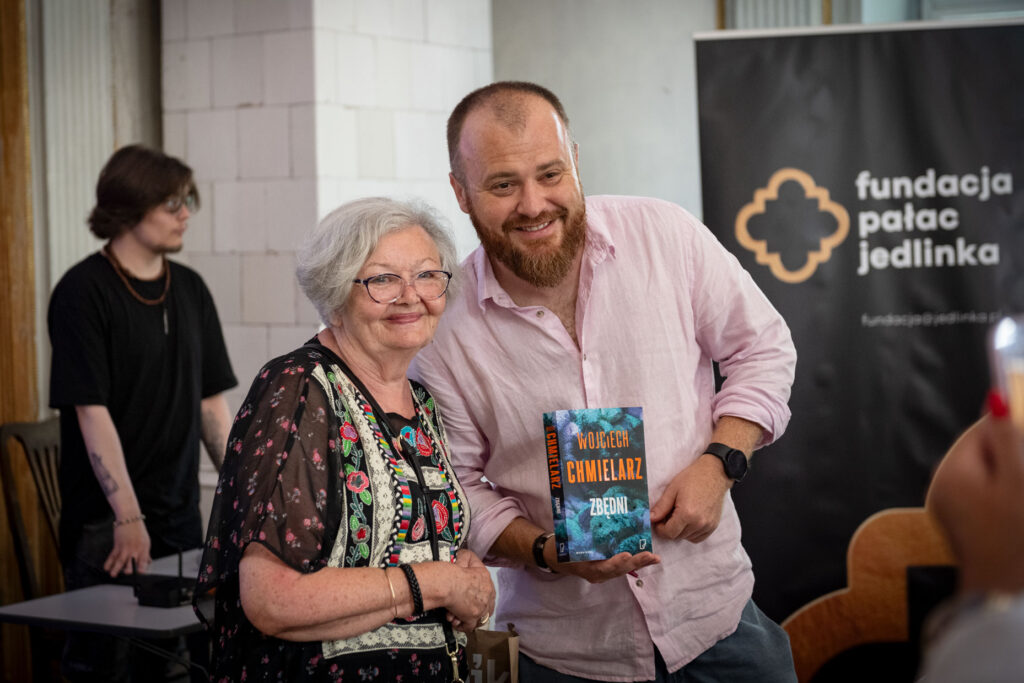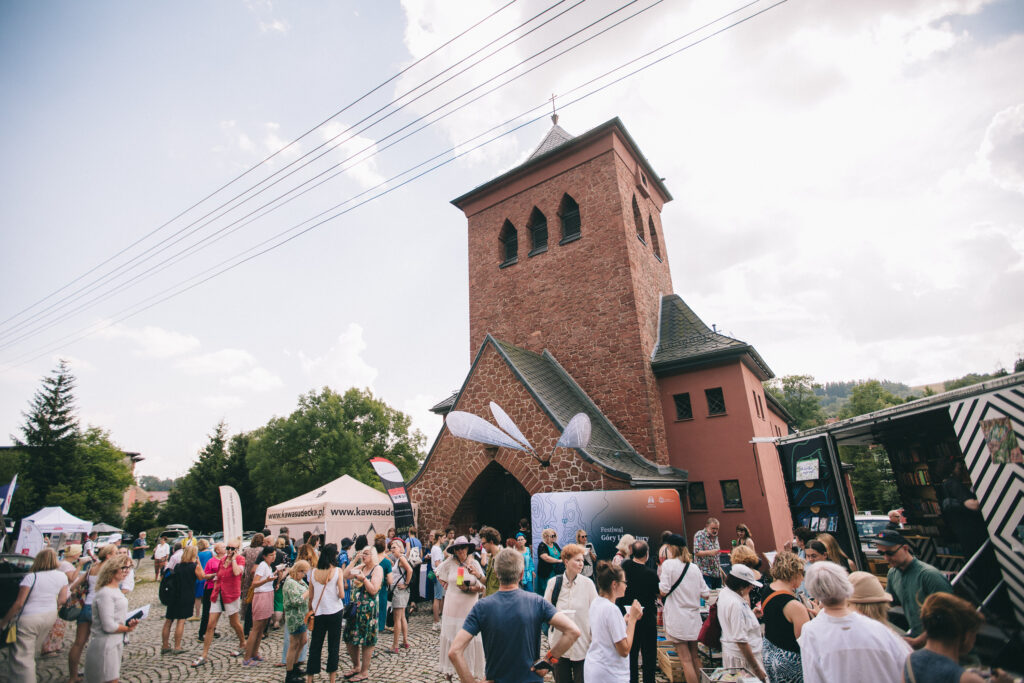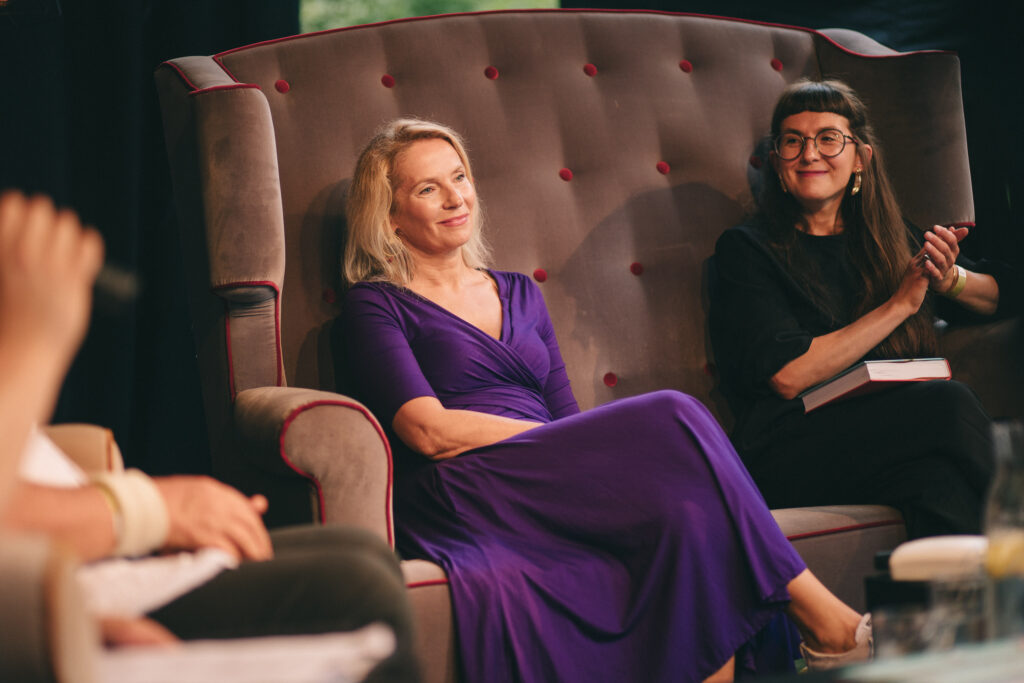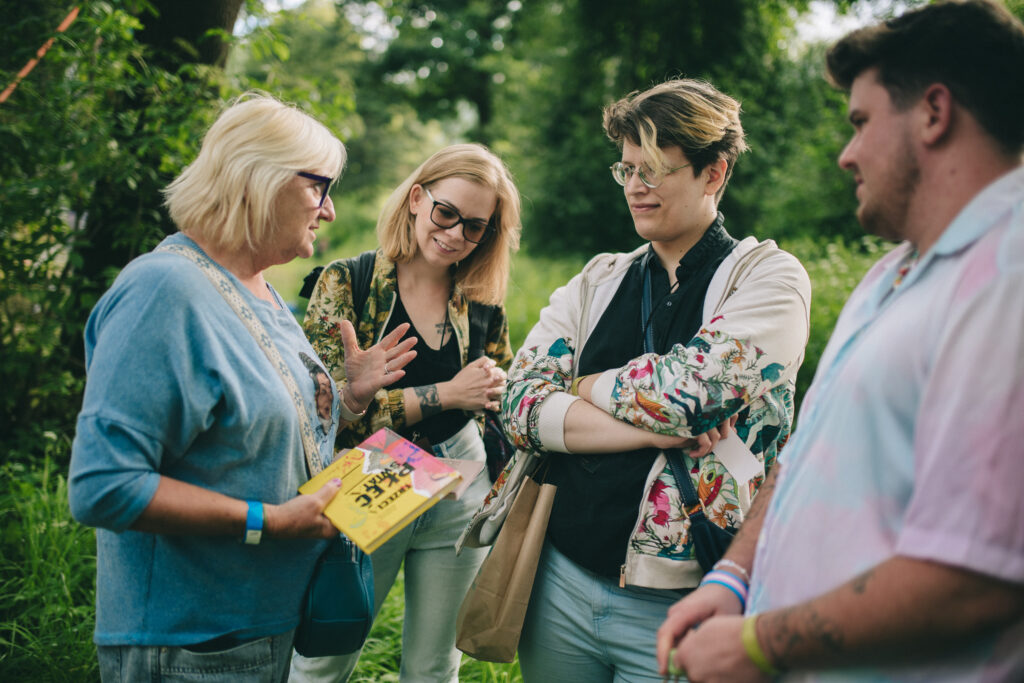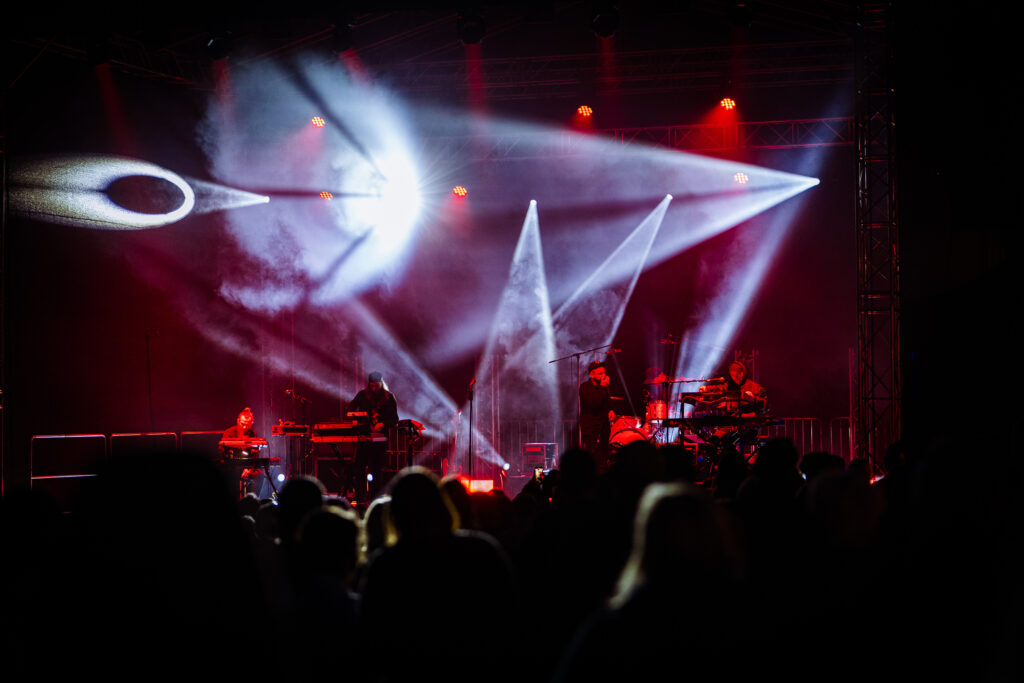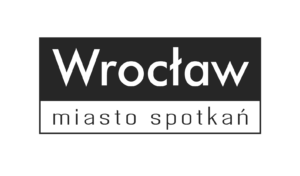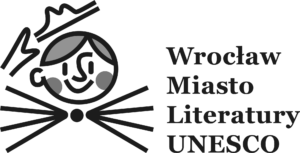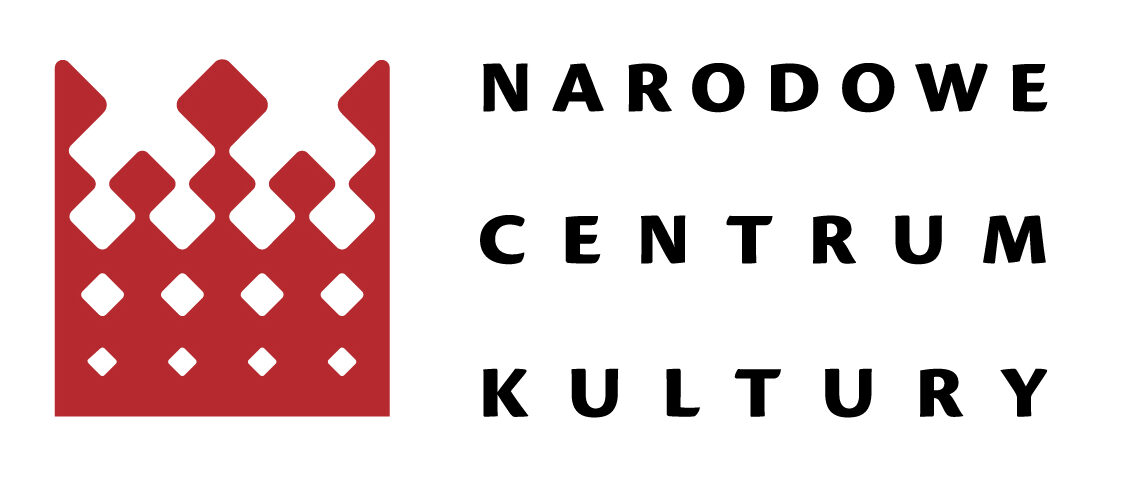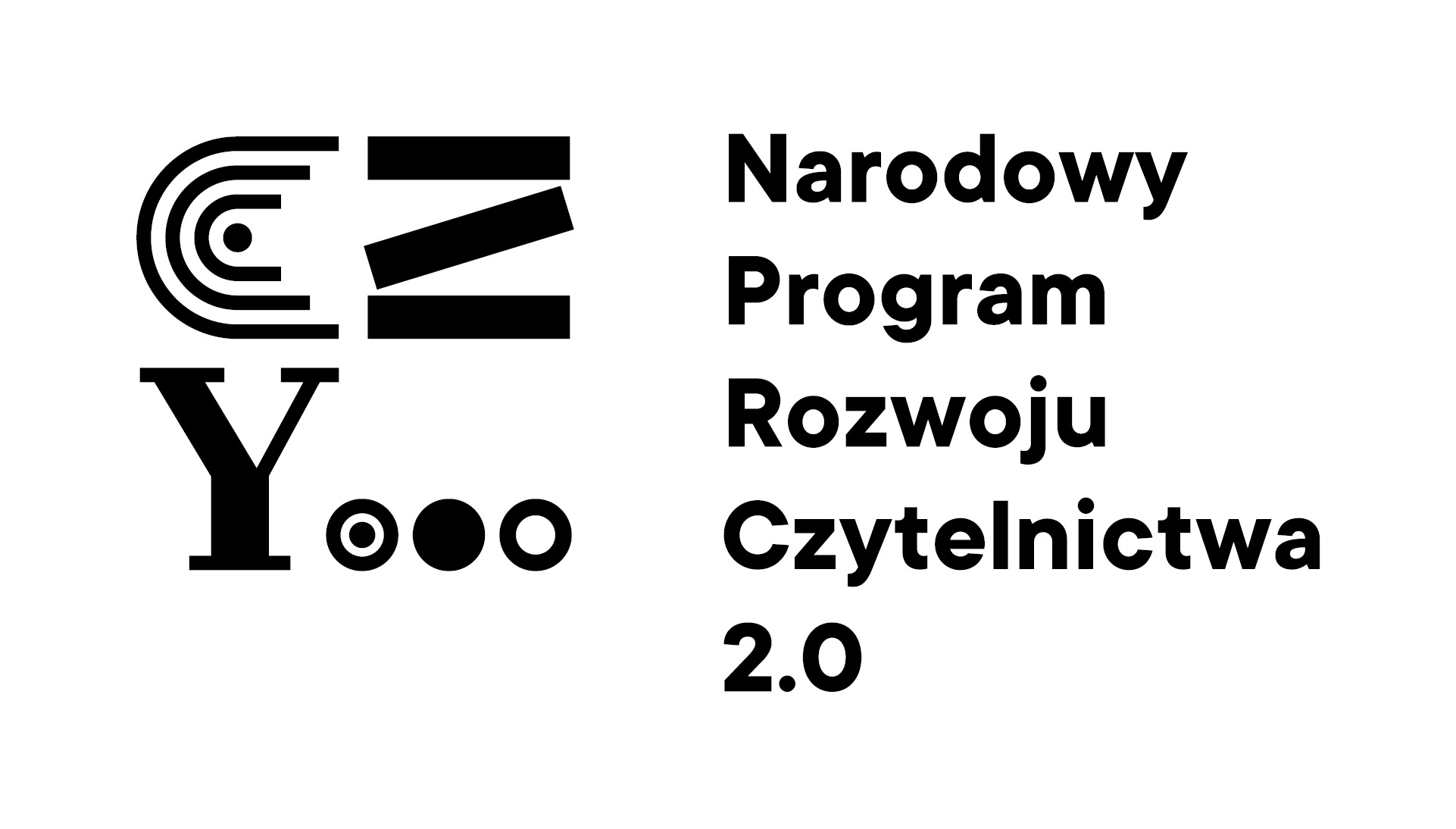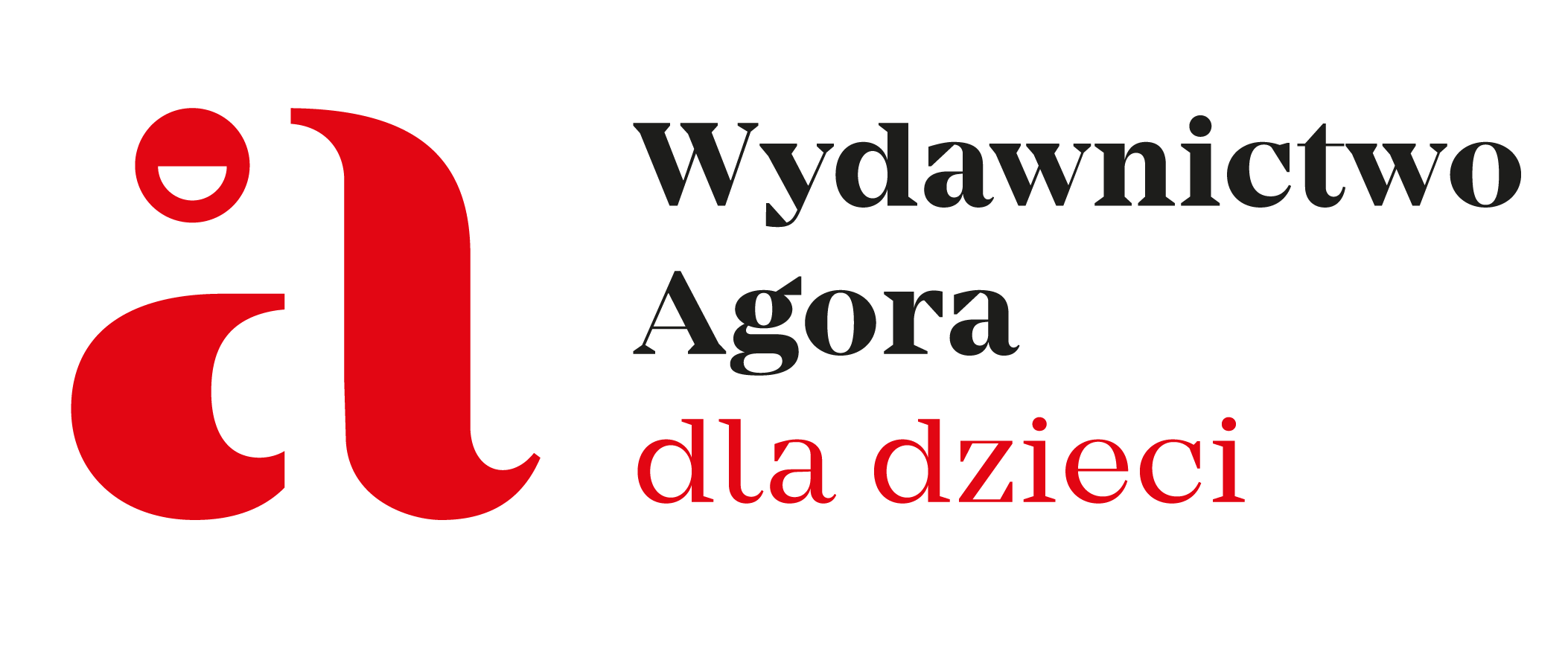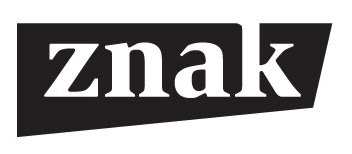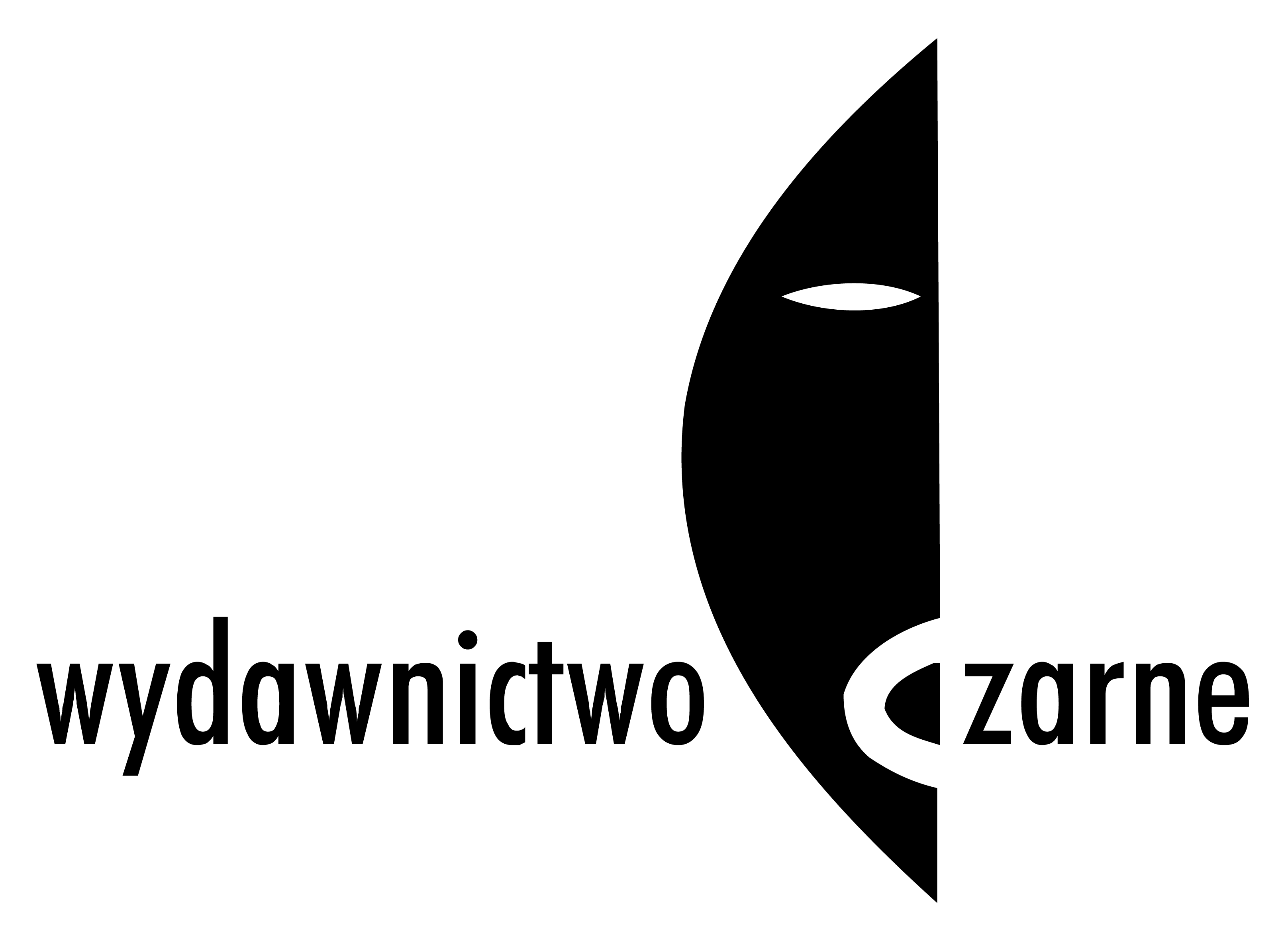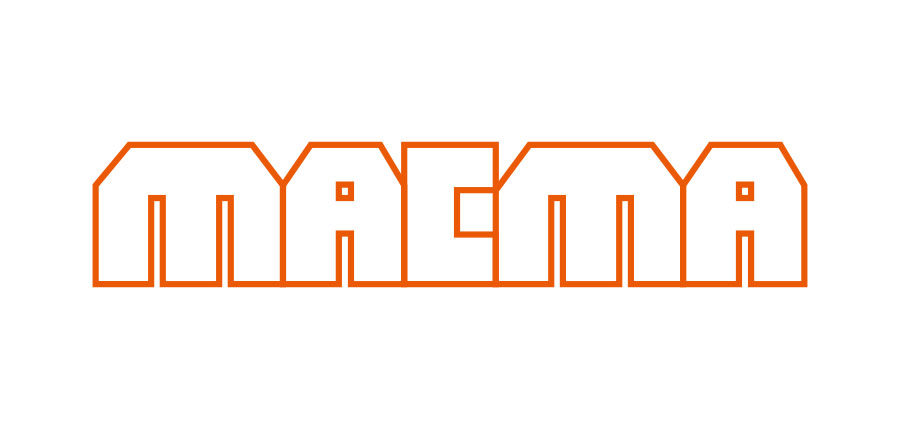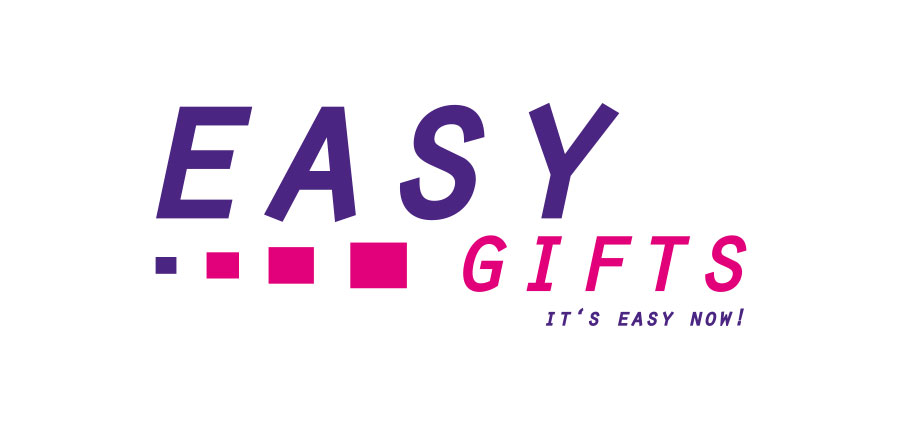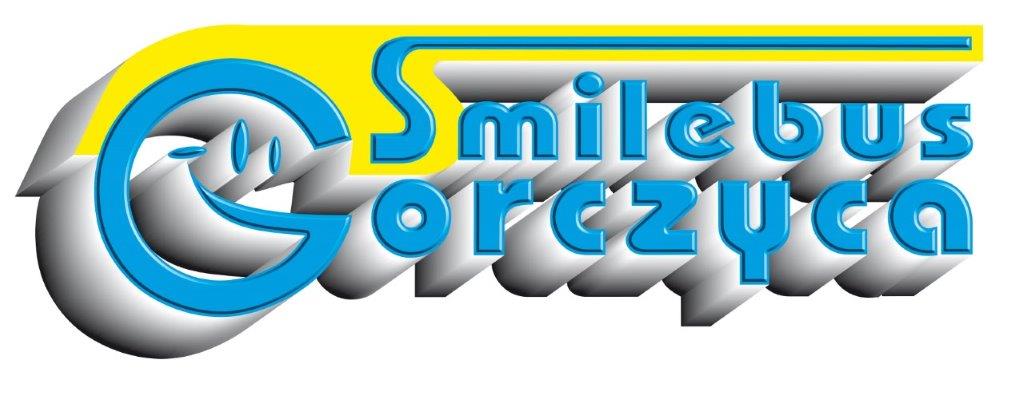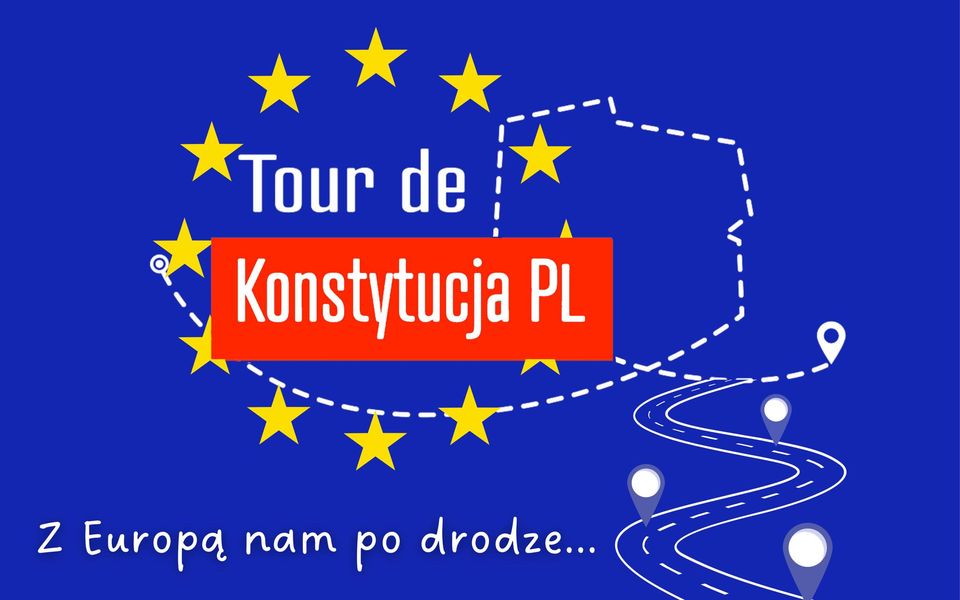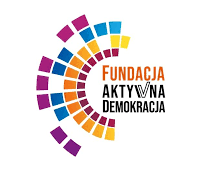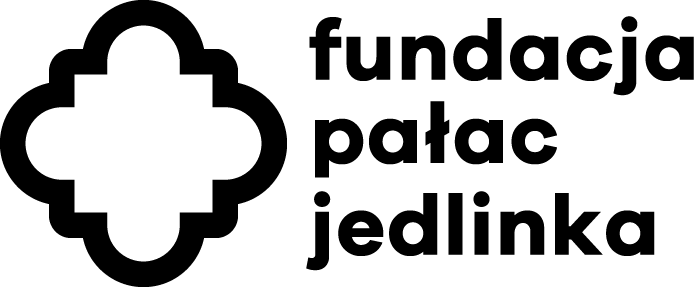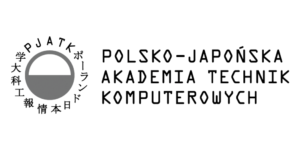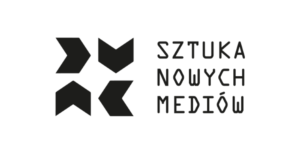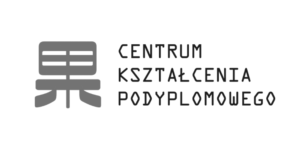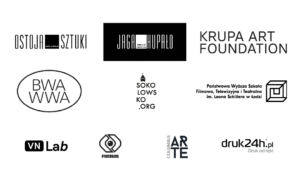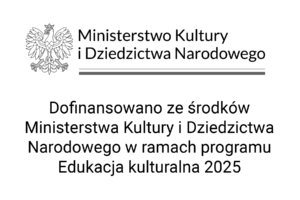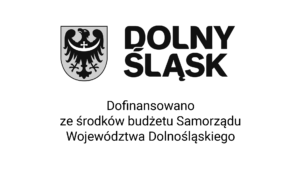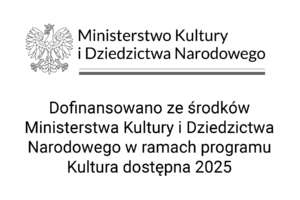We invite you the 11th edition of the Mountains of Literature Festival. We’ll meet between 4 and 12 July in over 20 locations in Lower Silesia. We’ll visit Sarny Castle in Ścinawka Górna, Nowa Ruda, Wałbrzych, Kłodzko, Ludwikowice Kłodzkie, Jedlina-Zdrój, Dzierżoniów, Dzikowiec, Radków, Opolnica, Gajów and Sokołowsko. We’ve prepared almost 160 meetings with authors, debates, concerts, readings, workshops, exhibitions, film screenings, social actions and seminars, with the participation of over 200 guests.
The Mountains of Literature Festival was created on the initiative of Olga Tokarczuk in 2015. From the beginning, the main goals of the event are: cultural and civic activation of the residents of Kłodzko Land and Wałbrzych Conurbation, promotion of culture and readership, propagation and strengthening of the ideas related to ecology and equality, as well as promotion of the region.
The motto of this year’s edition is “Manipulation, disinformation, hate”. We believe it’s not too late to actively counteract those phenomena. If we don’t do it, soon they’ll be used at such a huge scale, nothing will be able to stop them from totally destroying the weakening democratic and humanistic values.
The awareness and knowledge about the mechanisms of manipulation, as well as rules governing disinformation have slim chances to appear in mainstream media, and as a result in universal awareness. In a world dominated by shredded and easily digested information, reading long studies, indispensable for understanding the heart of the problem, is not practised often. If we don’t want media headlines trying to describe manipulation and disinformation and the hate resulting from using them to be for example: “Key words for understanding our times”, “Tools the best describing and shaping our reality”, “Notions the most precisely defining our relationships”, we have to search for various methods to deal with this ‘new canon of information’.

Our inspiration to take up this subject was both the last year’s edition, when together with our guests we were flooded with an unprecedented wave of hate speech, based on manipulation and disinformation, as well as words spoken this year by Olga Tokarczuk during the ceremony of receiving honoris causa doctorate at Sorbonne:
We’ve now entered a very uncertain, even dangerous period in the history of the world. The old political order seems to turn into dust, and the new one, being established in front of our eyes, gains a disturbing shape. Old demons, seemingly exorcised a long time ago, return. In the global war for world dominance, information is used as a weapon which can mislead, manipulate, delude, deceive and finally kill.
In such a reality of omnipresent lie, we have to even more attentively care not to lose the material and real contours of our world, especially in the situation when hordes of falsifiers advance on us, devilishly skilful in the shocking interpretation of facts, able to turn black into white and the other way round.
Were is, therefore, the place of literary fiction in the war with falsehood, manipulation, disinformation, mystification, fake news, twisted statements and an ordinary lies?
During this year’s edition we’ll attempt to answer this fundamental and only seemingly paradoxical question posed by the Nobel Prize winer – it will resonate many times during discussions on books written by the invited authors – and we’ll look at the mechanisms of manipulation, misinformation and hate from many different, not always obvious and predictable perspectives. We’re convinced that the majority of phenomena destroying social life usually begin with an ordinary, primitive lie – and in order to effectively stop it from spreading, we need to find its sources.
We will analyse the notions of manipulation, disinformation and hate both in the context of social relationships, the environment and equality of rights, but also internet technologies as well as psychological, philosophical, historical and political issues. We’ll consider if art and culture have a chance to effectively counteract the influence of those phenomena on our reality and the future of the world. If the story from the motto of our organization – a phrase taken from the Nobel Lecture by our Founder: When this story changes, so does the world – is still going to be told by honest, sensitive and emphatic people. Of if maybe it’s going to be defeated by stories cynically told by evil people, by troublemaking and provocative (and often well-paid) trolls, by bots being unusually efficient emanations of very dangerous minds?
What will happen to our everyday life in the coming years? Will we be forced to redefine things we so far considered obvious? What will we accept as a new ‘normal’? Are we allowed to get used to the fact that the limits of acceptance of issues which are actually unacceptable are constantly moving? Will words such as honesty (also intellectual), dignity and truth be graded – widely and thoughtlessly? Who will change the story and the world? In what way will the manipulated language and other communication tools feeding on disinformation distort our perception of reality? What will that reality be and who will create it? And finally: why national categories, for example the Polish identity, should guarantee righteousness, while some specifically understood ‘otherness’ – meaning actually being banned from the national community – are considered a proof of vile behaviour? In other words: who has the right to tell us who we are and in what way?
We’ll try to answer the question who should be telling us the world today and whom we’ll allow to change it, not only through the lips of people creating literature. That’s why we invited to our stages people who have to deal with falsified information about themselves everyday, with a lie which results in a huge hate.
So we’ll speak to, among others, Maja Ostaszewska and Jurek Owsiak, Adam Michnik and Adam Bodnar, Olga Tokarczuk and Michał Bilewicz, Jolanta Kwaśniewska and Joanna Tokarska-Bakir. What do they have in common, an actress and a leader of a non-governmental organization, the editor-in-chief of Gazeta Wyborcza and the minister of justice, a writer and a social psychologist, the former first lady of Poland and a historian of Shoah? Obviously the courage in pursuing the truth and defending humanistic values, but unfortunately also a question posed to them by thousands of anonymous – and in our opinion often manipulated – people: are you even Polish?
We’ll welcome to our stages also foreign writers and journalists, who in their work regularly ask questions close to the motto of our festival: Götz Aly, researcher and specialist in Nazism, Anne Appelbaum, who studies the mechanisms of autocracy, Petra Hůlová, author of the famous novel Plastikowe M3, czyli czeska pornografia [Plastic Three-Bedroom Apartment or Czech Pornography], Georgi Gospodinov, author of the already cult Physics of Sorrow, Patrick Radden Keefe, who in his Empire of Pain deals with kings of the pharmaceutic industry, Kateřina Tučková, author of the book Bílá Voda about the centre for detaining nuns on the Polish-Czech border and Oksana Zabuzhko, Ukrainian writer very popular in Poland, who’s fighting misinformation of the Kremlin.
We’ll also be visited by an array of Polish authors, among them: Magdalena Barbaruk, Joanna Bator, Grzegorz Bogdał, Sylwia Chutnik, Urszula Glensk, Justyna Dąbrowska, Katarzyna Grochola, Mikołaj Grynberg, Magdalena Grzebałkowska, Roksana Jędrzejewska-Wróbel, Weronika Kostyrko, Katarzyna Kubisiowska, Joanna Kuciel-Frydryszak, Renata Lis, Ewa Mańkowska, Monika Muskała, Mateusz Pakuła, Marcin Szczygielski, Agnieszka Taborska, Wojciech Tochman, Adam Wajrak, Ewa Winnicka, Urszula Zajączkowska and Katarzyna Zyskowska.
During various activities, we’ll also meet, among others, Bogdan de Barbaro, Katarzyna Bąkowicz, Piotr Chmielewski, Mikołaj Dorożała, Magdalena Dziewguć, Michał Figura, Jaga Hupało, Tadeusz Gadacz, Aleksandra Gliszczyńska-Grabias, Sylwia Gregorczyk-Abram, Leszek Kolankiewicz, Katarzyna Kozyra-Zyskowska, Adam Leszczyński, Filip Łobodziński, Wojciech Mann, Anda Rottenberg, Dorota Sumińska, Tomasz Stawiszyński, Radosław Ślusarczyk, Halszka Witkowska, Monika Tadra and Ewa Woydyłło.
Among this year’s lecturers at the Flying People’s University, apart from regular guests of the festival – Edwin Bendyk, Karolina Kuszlewicz, Karol Maliszewski and Magdalena Środa, there’ll be an opportunity to meet, among others, Lena Bielska, Katarzyna Błażejewska-Stuhr, Jakub Gałęziowski, Katarzyna Kasia and Grzegorz Markowski, Jan Mencwel and Elżbieta Mirga-Wójtowicz. Many of the classes we’ve proposed this year will directly allude to demythologising the phenomena of manipulation, disinformation and hate, as well as counteracting them.
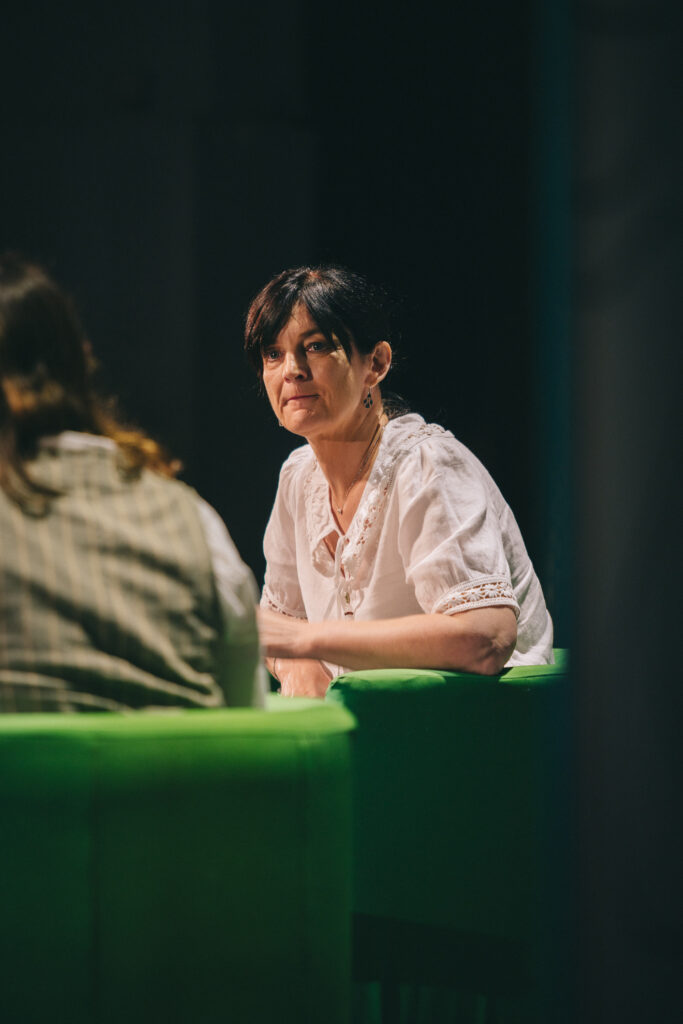
As part of the programme of events for children and the youth Little Mountains of Literature – considerably extended in comparison to previous years – we invite for workshops and lessons with, among others, Malwina Hajduk, Boguś Janiszewski, Grzegorz Kasdepke, Agata Romaniuk, Katarzyna Stoparczyk and Ola Szmida.
Meetings with our guests will be moderated by, among others, Urszula Glensk, Eliza Kącka, Katarzyna Kolenda-Zaleska, Ryszard Koziołek, Michał Nogaś, Małgorzata Omilanowska, Emilia Padoł, Amelia Sarnowska, Olga Wróbel and Dorota Wysocka-Schnepf.
There will be 9 concerts. The artists include Możdżer Danielsson Fresco Trio, Kaśka Sochacka, ZALEWSKI, RGG & Robert Więckiewicz, Artur Andrus, Zespół Reprezentacyjny, Łona | Konieczny |Krupa, Pidżama Porno, Hołdys / Waglewski / Karimski Orchestra.
This year we’ve prepared as many as three events of reading aloud. Fragments of The Promised Land by Władysław Stanisław Reymont will be read by Daniel Olbrychski and Andrzej Seweryn, the unforgettable Karol Borowiecki and Maks Baum from the film adaptation of the book directed by Andrzej Wajda. Olga Tokarczuk’s short story Dress Rehearsal, a text very relevant today, by will be interpreted by Marek Kondrat, Andrzej Seweryn and Maciej Stuhr. And Maja Ostaszewska will read fragments of the novel Дім для Дома [Dom’s Dream Kingdom] by VictoriaAmelina, a Ukrainian writer, former guest of our festival, who was killed together with many civilians, while documenting Russian war crimes, during the Russian army’s attack on Kramatorsk two years ago.
All regular festival segments will be present as well – the art programme this year will include an extensive and diverse exhibition After the Rain, curated by Jaga Hupało and Anna Klimczak. As part of the exhibition we’ll present – in various locations – works by several dozen artists, including Bożenna Biskupska, Joanna Concejo and Pola Dwurnik. We’ll also be visited by Sisters Rivers. An important element of the exhibition will be works expressing the dramatic experience of last year’s flood. And they won’t be the only element of the programme related to the September tragedy.
The poetry segment curated by Karol Maliszewski will again present young voices in Polish poetry as well as the “less-known Polish literature”. We’ll meet, among others, Anna Janko, Maciej Robert, Bianka Rolando, Dariusz Sośnicki, Mirka Szychowiak, Antonina Tosiek and Aga Zano.
Once again we’ve organized a debut of an amateur theatre in a professional theatre: Fabryczna Music Theatre from Ludwikowice Kłodzkie will perform on the stage of the Jerzy Szaniawski Drama Theatre in Wałbrzych.
And once again, for the majority of the festival we’ll be accompanied by Tour de Constitution, a social-educational initiative organized by Active Democracy Foundation.
Come join us!
